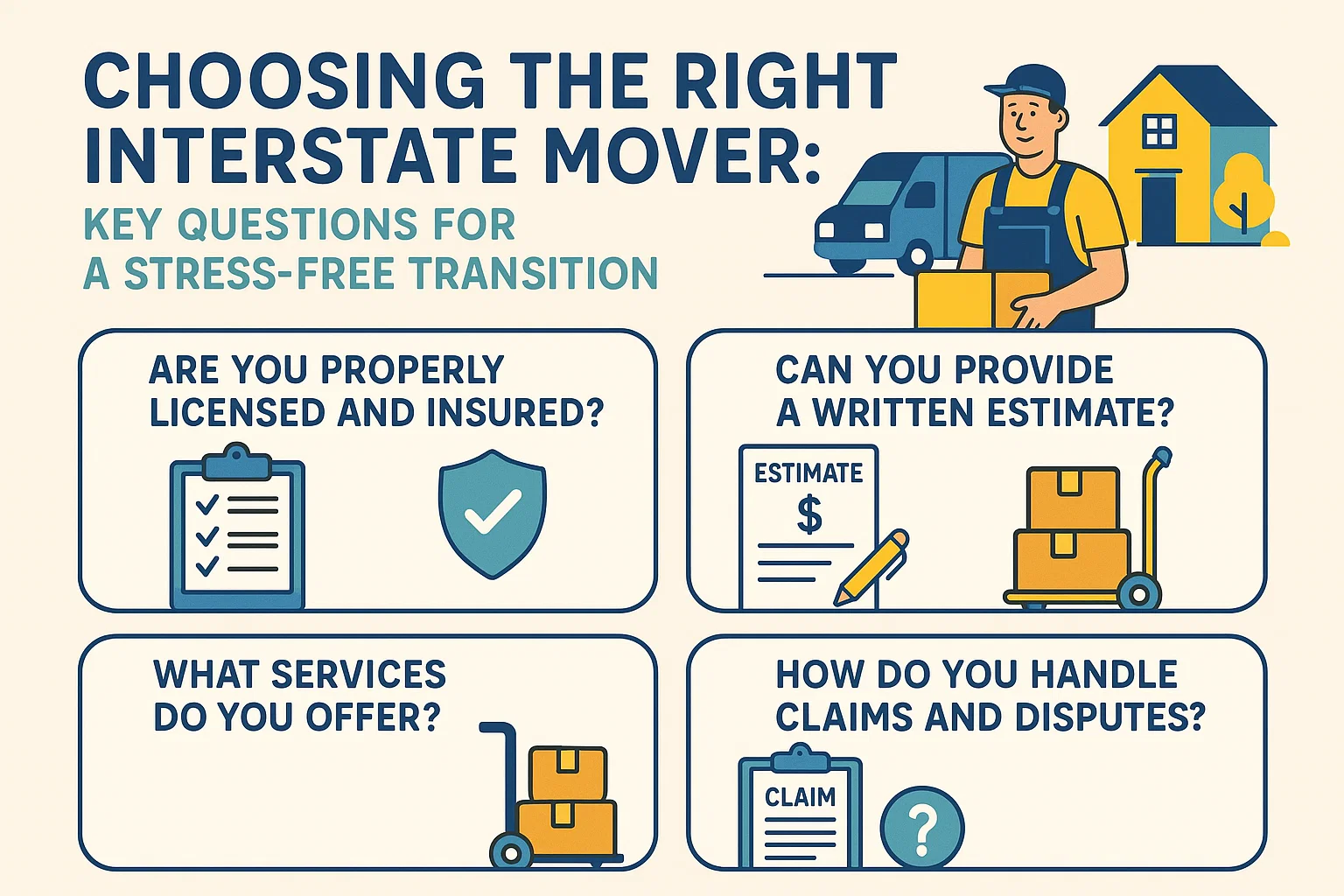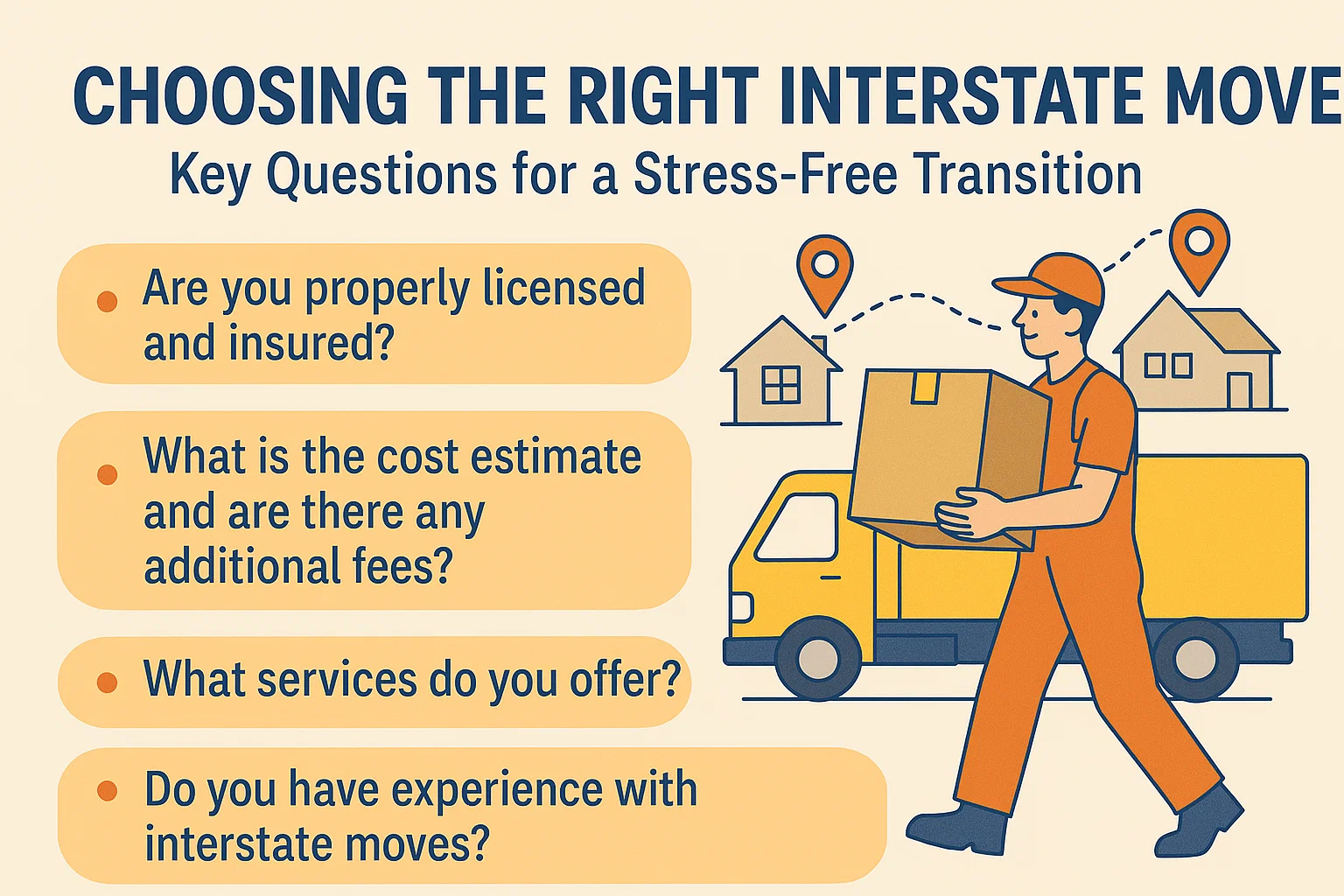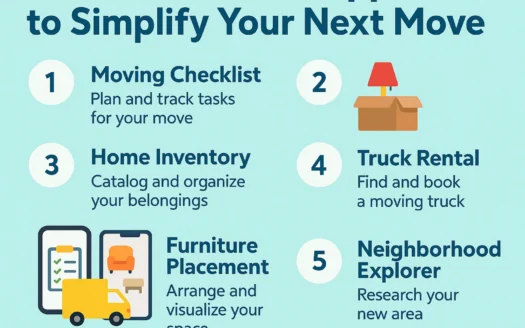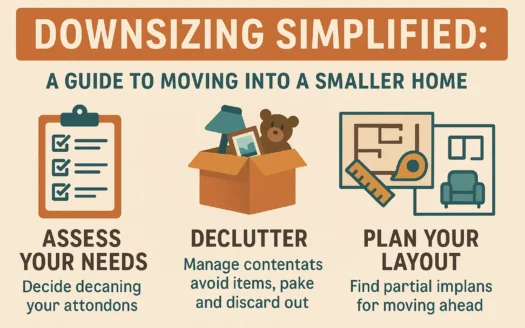Choosing the Right Interstate Mover: Key Questions for a Stress-Free Transition

Choosing the Right Interstate Mover: Key Questions for a Stress-Free Transition
Selecting a moving company is a significant decision that affects your finances, possessions, and peace of mind during a major life change. Finding a reliable mover ensures a smoother, more comfortable transition—especially for interstate moves, where careful planning is essential to minimize stress.
Essential Questions to Ask When Evaluating Moving Companies
1. Can you provide a binding quote?
Federal law entitles customers to a binding quote, which guarantees the maximum cost of your move based on a pre-determined scope of work. To receive this, a certified assessor must evaluate your belongings in person. The written quote becomes a legal document that locks in your moving costs.
2. Are you a member of the American Moving and Storage Association (AMSA)?
AMSA membership requires compliance with federal moving regulations, ensuring higher customer service standards. While the U.S. Department of Transportation regulates interstate movers, AMSA membership also elevates quality for local moves governed by less strict state laws.
3. Do you use employees or subcontractors for moves?
Companies with in-house staff often foster loyalty and accountability, leading to better service. Subcontractors may lack commitment to the company’s standards, and their insurance coverage could leave you liable for injuries or damages during the move.
4. How are special items handled?
Ask detailed questions about moving fragile or high-value items like pianos, heirlooms, or electronics. The answers will reveal the mover’s expertise and willingness to accommodate your preferences. Remember: no insurance can replace irreplaceable items, so prioritize transparency and experience.
5. What happens if items are damaged or lost?
Understand the difference between Full Value Protection (the mover’s liability to repair or replace items at full value) and Released Value Protection (default coverage at 60 cents per pound). Some companies offer third-party insurance—compare options to determine the best fit for your needs.
6. Do you blanket-wrap furniture and appliances?
Confirm whether delicate surfaces will be protected with blankets during transport. Despite seeming low-tech, this method remains the gold standard for preventing scratches and damage.
7. How do you protect my homes during the move?
Ensure the crew uses measures like floor coverings, door protectors, and careful handling to safeguard both your old and new property. If the process sounds insufficient, consider another company.
8. Do you require a deposit?
Reputable movers typically don’t ask for upfront deposits. Payment via credit card or cashier’s check on moving day is standard. Demands for a deposit may signal untrustworthy practices.
By addressing these questions upfront, you can avoid surprises, reduce stress, and ensure a seamless transition—whether you’re moving across town or across the country.




